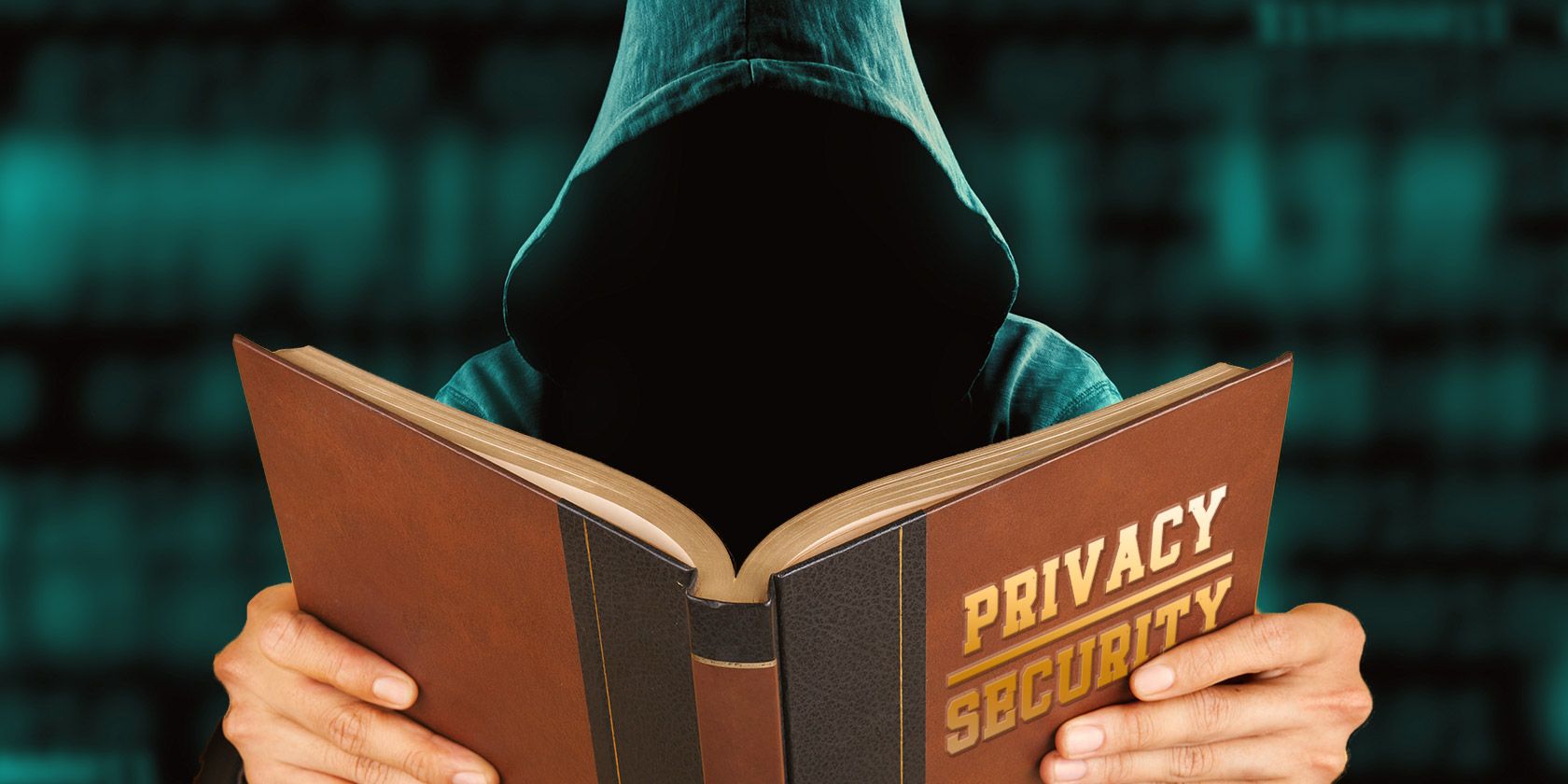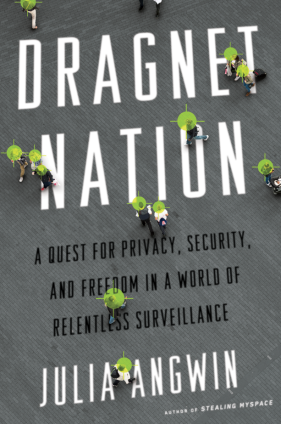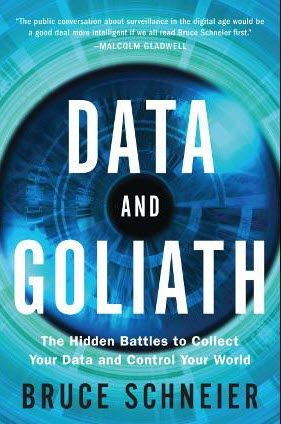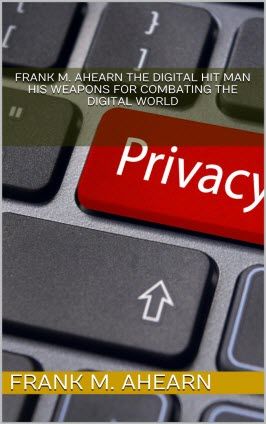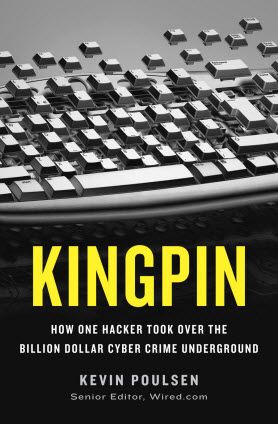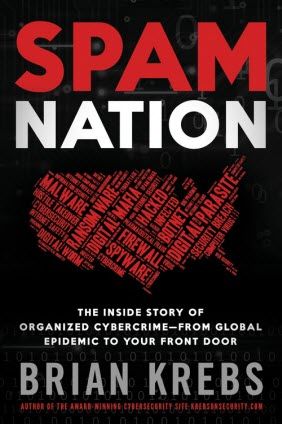As online privacy and security continue to be spicy hot topics, a whole range of high quality books are being written on the subject. If you have any interest at all in this subject, you should never have a shortage of reading material, as experts in these fields give their opinions, and tell stories, on a wide range of related topics.
I have scoured the hidden depths of my Amazon Kindle to find six books about online privacy and security you absolutely need to read.
Dragnet Nation - Julia Angwin
I have previously mentioned Dragnet Nation in my article about breaking free from Google's grasp. This is an immensely readable book, which details Angwin's attempts to take back her privacy. She does this by contacting hundreds of data brokers, requesting what information they have on her, and demanding that it be removed.
She also tries to encrypt her email, delete her Google search history, keep her credit cards in an RFID wallet, and install tracker blocking plugins (such as Ghostery) on her Web browser. She achieves mixed, all of which she discusses in the book.
Angwin also reveals that she applied for a credit card in a different name, and set that person up with a whole new identity, testing to see if that identity would eventually be traced back to her. It's gripping stuff, and you will definitely read it all the way to the end.
Data & Goliath - Bruce Schneier
In Data and Goliath, Bruce Schneier sets out to do what Angwin did. He tries to show us who is doing what to us, and how they are using our information. In doing so, he manages to beautifully lay out why privacy is (or at least should be) an essential human right for every person.
He tells us what our mobile phone is doing to us while it is switched on. He reveals what happens when you buy something online and what that reveals about us. Do you do a lot of emailing? That too can erode your privacy away. Then there's the almighty Google that knows everything about us. But how and why? Schneier doesn't let Facebook off the hook either. What information do they collect on you, and what do they do with it?
Governments and corporations have turned the world into one huge Big Brother society. But why do we tolerate these blatant intrusions into our lives? Schneier lays it all out, offers a solution to the problem, as well as giving advice on how you can protect yourself.
Digital Hit Man - Frank Ahearn
Digital Hit Man is a book by Frank M. Ahearn, who specializes in disappearing people. Previously, he was at the other end of the spectrum - employed as a skip-tracer, and hired by the rich and famous, as well as tabloid newspapers, to find people who didn't want to be found.
He used a technique called "social engineering" to obtain confidential records, which enabled him to hunt down his quarry. Later, he started his own witness protection program, and helped victims of stalkers.
Now he has flipped the coin to become an expert in how to disappear. In his book, he shows you how to create and use deception to combat sites that are violating your online privacy by revealing information that is making your life a living hell. As a master of deception and misdirection, Ahearn will show you how you can get that embarrassing information off the Internet.
Fatal System Error - Joseph Menn
Joseph Menn covers cyber-security stories for the Financial Times, and the plaudits he has received for Fatal System Error are numerous. The book recounts the story of a computer expert called Barrett Lyon, who decided to investigate hackings on business websites. Unbeknownst to him, the Russian mob were behind these attacks. They were stealing from corporations, stealing financial consumer data, and stealing government defense secrets.
This was in 2004, and at this time, US law enforcement was still not up to speed on these issues. Not so the UK. The London-based National Hi-Tech Crime Unit sent agents to enlist Barrett's help. They also sent a detective to Russia to find and take down the hackers.
Fatal System Error offers unprecedented access to both mob businesses and Russian officials. It illustrates how top criminals earned protection from the Russian government, and the dangers currently facing the Internet.
Kingpin - Kevin Poulson
I first read Kingpin several years back, and it took over a long overdue holiday with my wife. Instead of visiting relatives and seeing the sights, I was instead hooked on this book. Like Dragnet Nation, it is a very easy read - Poulsen (who is the senior editor at Wired magazine) has a knack for telling a story well.
The book concerns a black-hat hacker called Max "Iceman" Butler who, as well as being a celebrity and consultant for the FBI (Federal Bureau of Investigation), was also secretly running a multi-million dollar online crime ring. When word gets out that someone has just staged a hostile takeover of an online criminal network that siphoned billions of dollars from the US economy, the FBI rushes to investigate.
Little did they know that the person they were seeking was none other than Butler. But despite undercover operations, moles, and double agents, Butler managed to stay ten steps ahead of the authorities. While doing so, he was also stealing millions of credit card numbers, and stealing money from fellow hackers.
This book covers law enforcement's efforts to catch Butler, and the effects that online criminal enterprises like this have on ordinary law-abiding people.
Spam Nation - Brian Krebs
Finally, a topic that everyone can identify with - spam. No, I'm not talking about the canned meat, but the annoying emails you get every day offering you a fantastically better sex life and cheaper medications from Canada. Or perhaps it's Nigerian princes offering you a cut of a huge fortune that the whole world has conveniently forgotten about. Yes, that kind of spam. The insidious type.
In Spam Nation, Krebs takes us into the criminal networks running the spam empires, and the banks in which they keep their money. He talks to computer programmers and mobsters to discover how the business is run, which also includes harvesting personal details and selling them on the black market.
All of which makes this a fascinating read for anyone who has ever received spam in their inbox. Which is surely everyone reading this.
Do You Have Any Other Recommendations?
Have you read any of these books?, If so, what are your opinions on them? Can you recommend any similar books about online privacy and security that your fellow MakeUseOf readers should check out? Please let us know your thoughts in the comments section below.
Image Credits: privacy theft Via Shutterstock, hand holding a book Via Shutterstock

